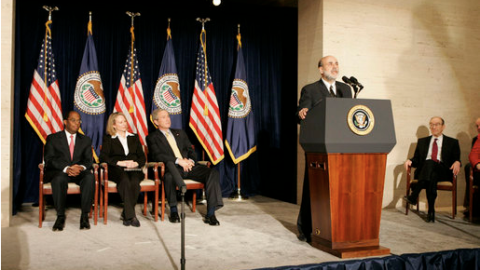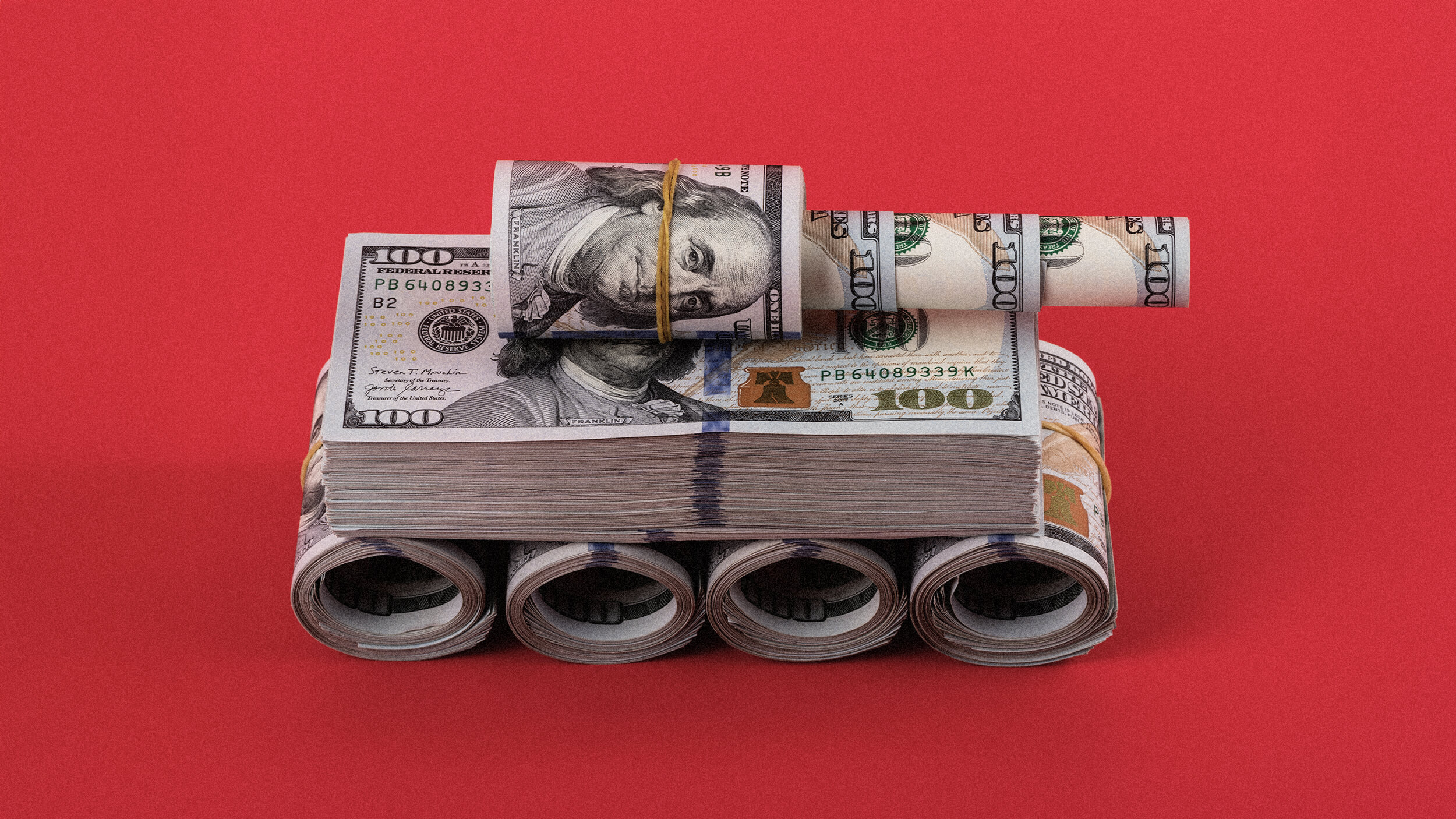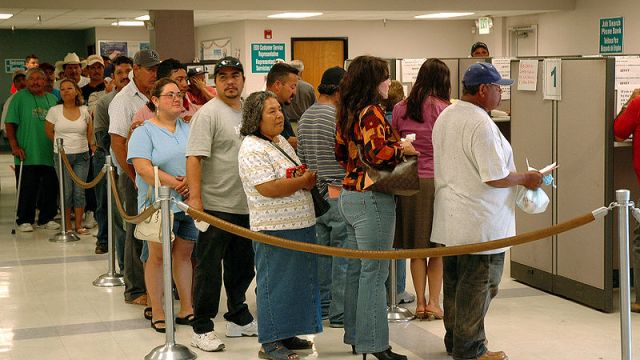How the Fed Caused the Financial Crisis

As part of the third week of Big Think’s series “What Went Wrong?,” the Former CEO of BB&T John Allison discusses the role of governmental policies in creating the housing bubble that burst into the financial crisis of 2008. Allison has been a vocal critic of TARP and the bailouts, arguing that room for failure—even in our largest companies—is fundamental to the workings of a market economy and that punishing strong institutions to save those that have underperformed only engenders greater, long-term problems for everybody.
For Allison, the real culprit behind the crisis was a string of monetary policy measures enacted by Greenspan and intensified by Bernanke that sought to increase U.S. home-ownership to unsound levels thereby reinforcing reckless sub-prime lending through policy.
The former CEO highlights the key systemic issues that this crisis brings to the fore, namely, that the industries with the most regulations are also the most volatile and that less governmental intrusions, not more, are essential to sustainable economic growth. Allison also highlights the damage that has been done by printing too much money, arguing for a re-institution of the gold standard as our continued debasing of American currency is leading to attenuated market discipline, unsolvable government debt, and an increasingly severe threat of stagflation.
The series will continue every Wednesday for the next couple of months. We’ve asked a network of top economics bloggers to provide some questions for the interviews, as well as weigh in on the answers each week:
Economist’s View – Mark Thoma, Professor of Economics, University of Oregon
Economics One – John B. Taylor, Professor of Economics, Stanford University and former Undersecretary for International Affairs, U.S. Treasury Department
The New Republic’s The Stash– Noam Scheiber
The New Yorker’s The Balance Sheet –James Surowiecki – Columnist, and author of bestseller The Wisdom of Crowds
Marginal Revolution – Tyler Cowen, Professor of Economics, George Mason University
Reuters Finance, Felix Salmon
The American Prospect’s Beat the Press – Dean Baker, Professor of Economics, Bucknell University and Co-Director, Center for Economic Policy Research
The Money Illusion – Scott Sumner, Professor of Economics, Bentley University
Café Hayek – Russ Roberts, Professor of Economics, George Mason University and a research fellow at Stanford University’s Hoover Institution
The Atlantic’s Atlantic Business Channel– Dan Indiviglio
The Fly Bottle – Will Wilkinson, Research Fellow, Cato Institute
The Big Questions – Steven Landsburg – Professor of Economics, University of Rochester and Columnist, Slate
Econlog – Arnold Kling, Adjunct Professor of Economics, George Mason University and former employee of both Freddie Mac and the Federal Reserve
The Atlantic’sAsymmetrical Information – Megan McArdle, Managing Editor, The Atlantic
Causes of the Crisis – Jeff Friedman, Visiting Professor of Political Science, University of Texas and Founding Editor, Critical Review,
National Review’sThe Corner/The American Scene – Jim Manzi – Chief Executive Officer, Applied Predictive Technologies
The Economist’sFree Exchange/The Bellows – Ryan Avent, Online Editor, The Economist
Naked Capitalism – Yves Smith, President of Aurora Advisors, and former employee of both Goldman Sachs and McKinsey & Co.





